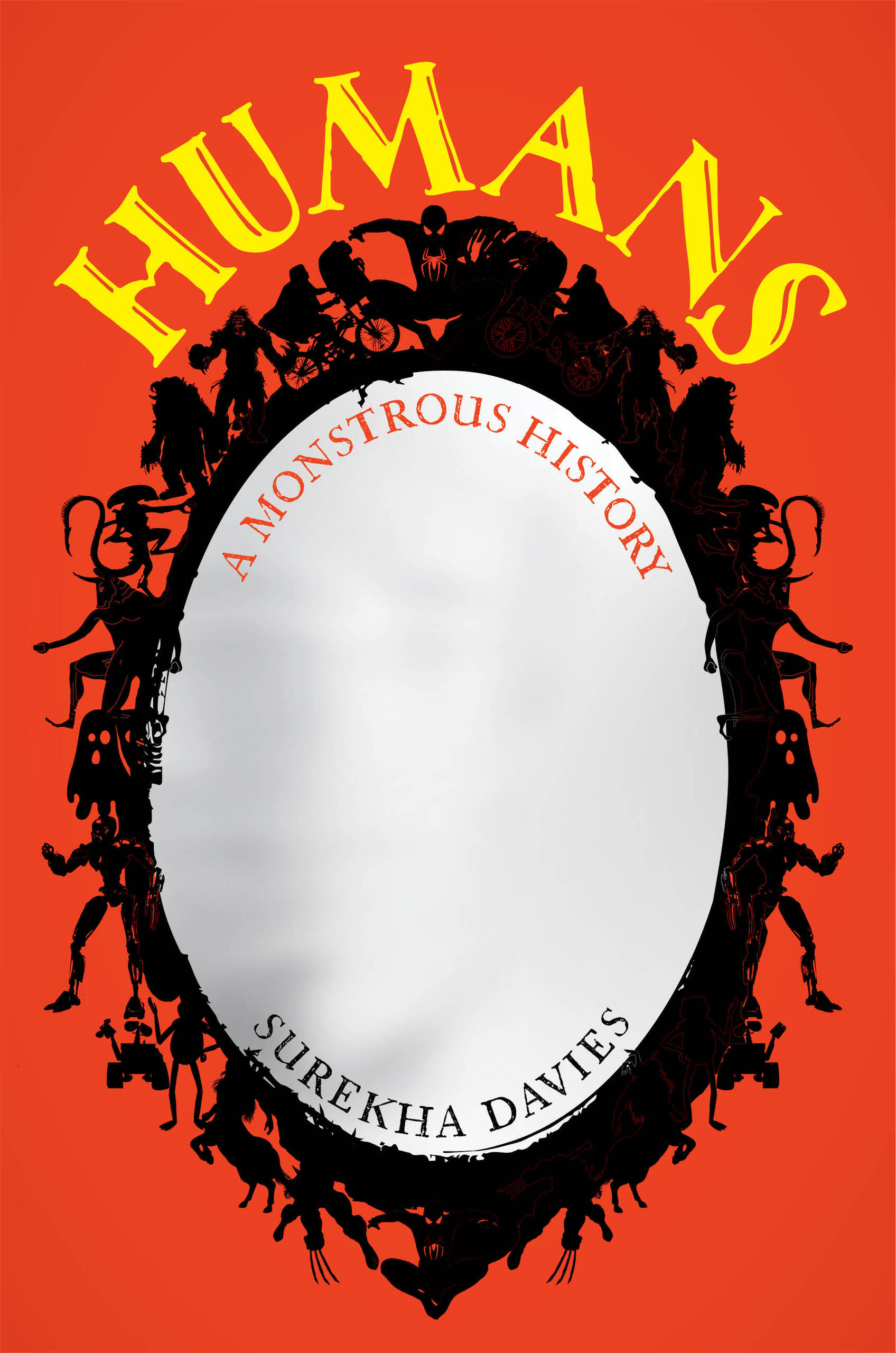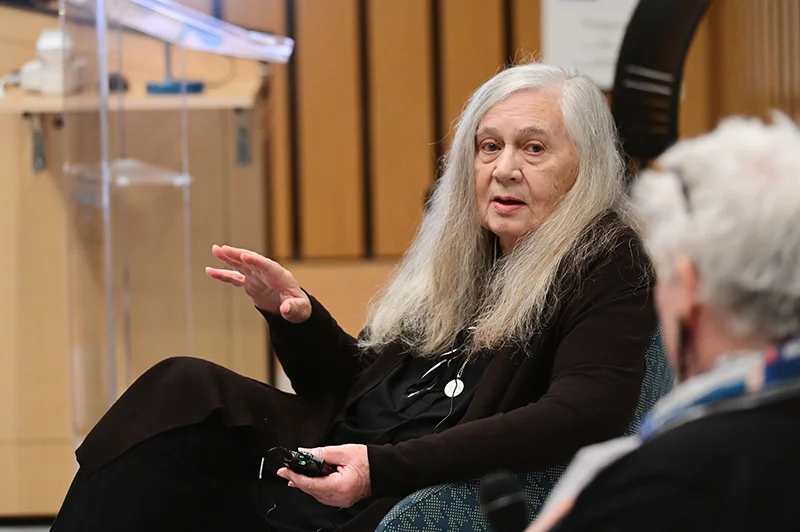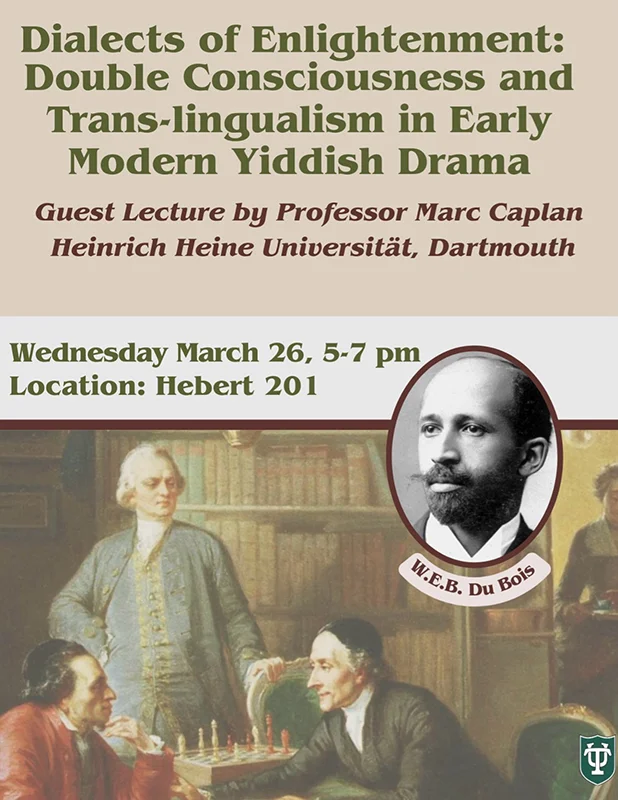
Humans: A Monstrous History
Lecture by Professor Surekha Davies
Please join the Department of Comparative Literature and the Medieval and Early Modern Studies Program for Dr. Surekha Davies' lecture "Humans: A Monstrous History", a powerful and provocative history of how humans have created monsters out of one another—and what these monsters tell us about humanity's present and future.
Dr. Surekha Davies is a British author, speaker, and historian of science, art, and ideas. Her first book, Renaissance Ethnography and the Invention of the Human, won the Morris D. Forkosch Prize for the best first book in intellectual history from the Journal of the History of Ideas and the Roland H. Bainton Prize in History and Theology. She has published essays and book reviews about the histories of biology, anthropology, and monsters in the Times Literary Supplement, Nature, Science, and Aeon.
Also sponsored by the Departments of Anthropology, French & Italian, and English.

Carole Barnette Boudreaux '65 Great Writers Series - Talk, Reception, & Book Signing
Marilynne Robinson
Please join us for the mainstage event of the School of Liberal Art’s 4th annual Carole Barnette Boudreaux ’65 Great Writers Series, featuring Pulitzer Prize-winning novelist and essayist Marilynne Robinson. Robinson will be reading & speaking on campus on January 28, 6:00 – 7:30 pm, in Lake Theater, Lake Hall, 36 McAlister Drive. English and Comparative Literature’s very own Professor Karen Zumhagen-Yekplé will interview Robinson following the lecture/reading, and will moderate the discussion and Q&A with audience members.
Robinson’s reading and lecture is free and open to all. There will be a reception and book signing following the event.
We hope you can join us for a rare opportunity to meet and hear one of the exceptionally distinguished American novelists of our time.

Dialects of Enlightenment: Double Consciousness and Translingualism in Early Modern Yiddish Drama”
Lecture by Professor Marc Caplan
Please join us for a talk by Professor Marc Caplan (Heinrich Heine Universität/Dartmouth), on W.E.B. Du Bois and Isaac Euchel and their philosophical influences, seen in terms of their shared concern with diaspora, ideology, translinguistic life, self and global citizenship examined in the contexts of the modern era and today.
The first modern drama written in Yiddish–with dialogue also in German, English, French, Plattdeutsch, and pseudo-philosophical jargon–is Isaac Euchel's 1793 comedy Reb Hanoch, oder Was tut me damit? ("Reb Hanoch, or What is to be done?"). Euchel was an early leader of the Haskalah or "Jewish Enlightenment" who had studied with Immanuel Kant as well as Moses Mendelssohn. Ostensibly writing in defense of Enlightenment ideology, his satire actually exposes contradictions within the conflicting definitions of Enlightenment that Kant and Mendelssohn had proposed a few years earlier. His use of multiple languages in the play demonstrates the differing ideologies, temporalities, and loyalties that Jews were forced to reconcile in the newly modern challenge of becoming citizens while remaining Jewish. Such dilemmas call to mind the critique of another student of German idealism, W.E.B. Du Bois, who a century later proposed a model of "double consciousness" to explain the particular burdens, between consciousness of the self and citizenship in a collective, that characterize the existence of African Americans. Euchel's translingual drama illustrates the commonalities of marginalization and integration that characterize Jewish and Black existence in the modern era, and offers insight into the role of language affecting global citizens in the world today.

